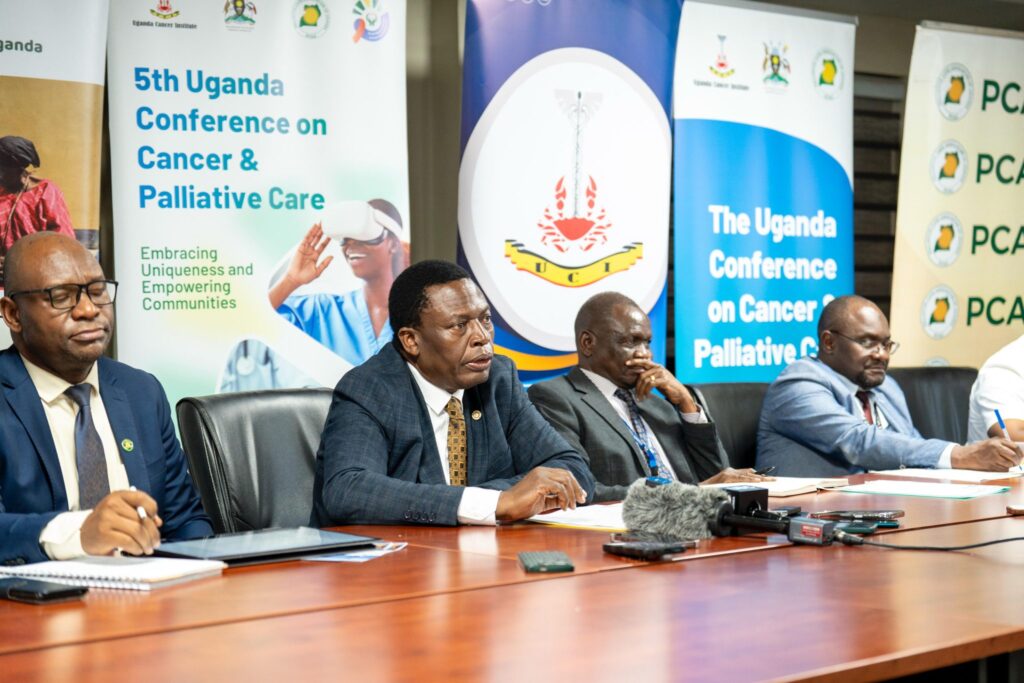
Uganda will host the 5th Uganda Conference on Cancer and Palliative Care from September 10–12, 2025, bringing together leading experts, researchers, healthcare professionals, policymakers, and advocates from across the country, the region, and beyond.
Organised by the Ministry of Health in partnership with the Uganda Cancer Institute (UCI) and the Palliative Care Association of Uganda (PCAU), the conference will run under the theme “Embracing Uniqueness and Empowering Communities.”
Speaking at the official media launch, Director General Health Services Dr. Olaro Charles explained that “embracing uniqueness” means tailoring care to each patient’s culture, age, condition, and needs, while “empowering communities” involves equipping people with the knowledge, resources, and voice to actively participate in their own care. Strong community engagement, he noted, improves early detection, treatment adherence, and overall support.
UCI Executive Director Dr. Jackson Orem said that despite progress in prevention, diagnosis, and treatment, many patients still present late and face limited access to essential services. “This conference is a vital platform to share research and collaborate to close gaps in care,” he stressed.
PCAU Executive Director Mark-Donald Mwesiga emphasised that palliative care is a right, not a luxury. “As we embrace the uniqueness of our patients and communities, we must ensure care is holistic, compassionate, and accessible to all,” he said, adding that the conference will give a voice to those often unheard.
Uganda records an estimated 34,000–36,000 new cancer cases annually, with over 24,000 deaths. Only about 20% of patients reach UCI for treatment, and survival rates remain low. The government is expanding capacity through new facilities, advanced radiotherapy equipment, and modern diagnostics.
For palliative care, Uganda leads the continent in integrating services into its health system. Care is available in 230 accredited facilities across 107 districts, though it currently reaches only 10–11% of those in need. Initiatives include the free provision of oral morphine and the creation of a dedicated Division of Palliative Care within the Ministry of Health.
Breast cancer survivor Gertrude welcomed the inclusion of a special track on survivorship, addressing stigma, access challenges, and the realities of life after cancer. “So many people are surviving cancer and living a good life,” she said.
Organisers are calling on health professionals, researchers, policymakers, advocates, and community leaders to take part in the conference, which offers opportunities to learn, share, and build partnerships for equitable cancer and palliative care in Uganda and beyond.